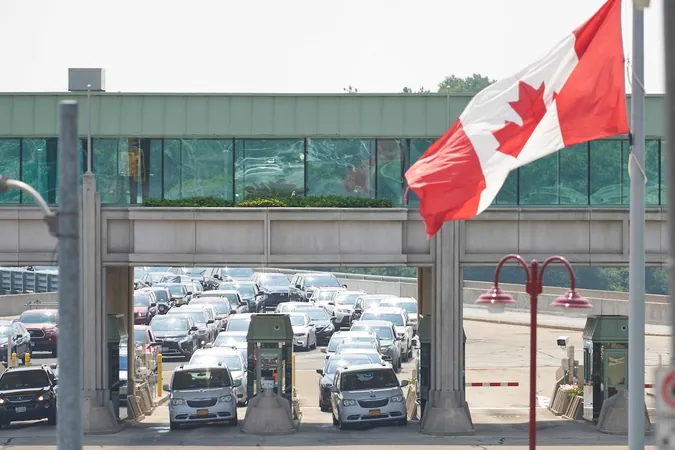
Canada's Border Bill Sparks Concerns: New Class of 'In Limbo' Foreign Residents?
2025-07-10
Author: Noah
A Controversial Immigration Legislation Emerges
A federal crackdown on asylum claims in Canada is raising alarm bells among refugee groups. The proposed Strong Borders Act, also known as Bill C-2, threatens to create a class of foreign residents stuck in a limbo, unable to return home yet barred from seeking asylum in Canada.
Living Without Status: The Grim Reality
Advocates warn that if the bill passes, it would force individuals from dangerous countries—deemed too unstable for deportation—to live without legal status in Canada. Refugee groups fear this may lead to significant numbers of people being unable to access their asylum claims, leaving them without rights and vulnerable.
Details of Bill C-2: What You Need to Know
The legislation would severely restrict the ability of asylum seekers who arrived in Canada after June 24, 2020, to have their claims heard by the independent Immigration and Refugee Board (IRB). This means those who have been here for over a year will no longer qualify for work permits or health coverage while they wait.
The Safe Third Country Agreement Implications
Additionally, the bill continues to target individuals who crossed into Canada illegally from the U.S. They would be barred from claiming asylum if they have been in Canada for at least 14 days, even though the existing Safe Third Country Agreement currently allows such claims.
Facing Deportation Despite Conflict
Most individuals denied asylum would be set on a path towards deportation. However, Canada has temporarily halted deportations for several conflict-hit countries, including Haiti, Ukraine, and Syria, complicating the situation for many hoping for refuge.
Refugee Advocates Voice Strong Opposition
Gauri Sreenivasan, co-executive director of the Canadian Council for Refugees, emphasized that this bill could leave countless individuals with genuine asylum needs stranded in Canada. She expressed concerns about the implications of not having their cases heard, leading to a permanent state of uncertainty.
The Government's Position
Matthew Krupovich, a spokesperson for Immigration, Refugees, and Citizenship Canada (IRCC), acknowledged the complexities introduced by Bill C-2, particularly for those who cannot be removed yet are barred from the IRB.









 Brasil (PT)
Brasil (PT)
 Canada (EN)
Canada (EN)
 Chile (ES)
Chile (ES)
 Česko (CS)
Česko (CS)
 대한민국 (KO)
대한민국 (KO)
 España (ES)
España (ES)
 France (FR)
France (FR)
 Hong Kong (EN)
Hong Kong (EN)
 Italia (IT)
Italia (IT)
 日本 (JA)
日本 (JA)
 Magyarország (HU)
Magyarország (HU)
 Norge (NO)
Norge (NO)
 Polska (PL)
Polska (PL)
 Schweiz (DE)
Schweiz (DE)
 Singapore (EN)
Singapore (EN)
 Sverige (SV)
Sverige (SV)
 Suomi (FI)
Suomi (FI)
 Türkiye (TR)
Türkiye (TR)
 الإمارات العربية المتحدة (AR)
الإمارات العربية المتحدة (AR)